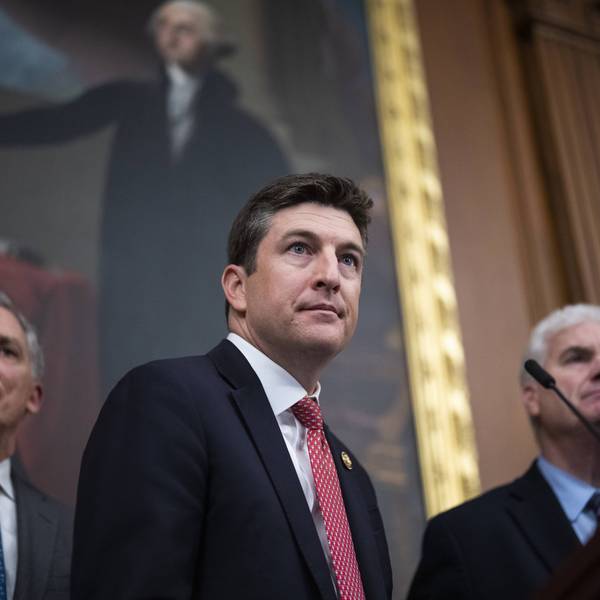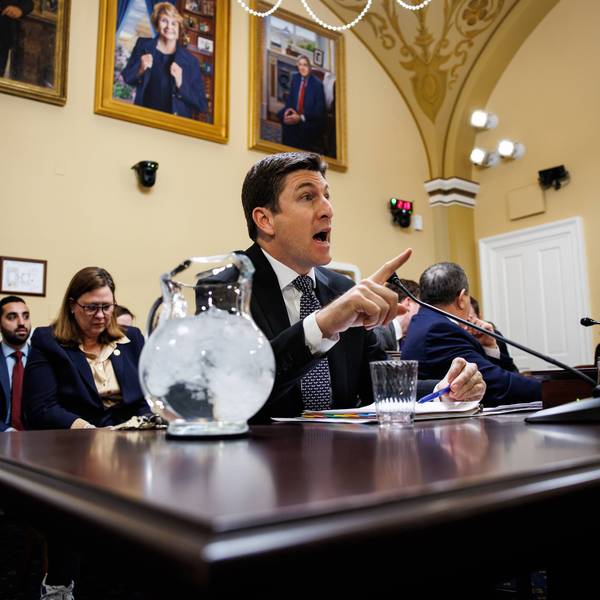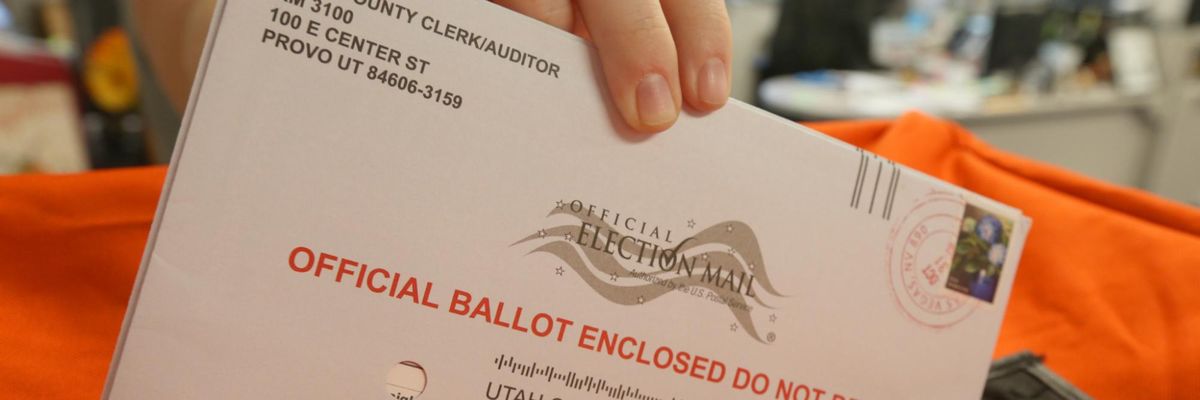Zero GOP lawmakers have backed the For the People Act, congressional Democrats' comprehensive plan to strengthen U.S. democracy by making it easier to vote, curbing partisan gerrymandering, and limiting the influence of money in politics.
Republican voters, however, support many of the proposals in the 800-page bill, according to a new poll released Monday.
The survey (pdf) of 1,138 likely voters across the country--conducted from April 16 to April 19 by Data for Progress on behalf of Vox--found that, when presented without partisan cues, the voting rights and election reform bill is popular with voters across party lines. Overall, 69% of the electorate supports the For the People Act, including 52% of Republicans, 70% of Independents, and 85% of Democrats.
As Vox reported:
More than 80% of respondents said they supported preventing foreign interference in elections, limiting the influence of money in politics, and modernizing election infrastructure to increase election security. More than 60% of respondents supported requiring nonpartisan redistricting commissions, a 15-day early voting period for all federal elections, same-day registration for all eligible voters, automatic voter registration for all eligible voters, and giving every voter the option to vote by mail.
With the exception of preventing foreign interference in elections, limiting the influence of money in politics, and modernizing election infrastructure to increase election security--broadly supported measures with less substantial partisan differences--Republican voters were not as enthusiastic about other provisions as Democratic and Independent voters.
For instance, more Republican voters opposed automatic voter registration for all eligible voters (46%) than supported it (44%). The same goes for restoring voting rights to people convicted of felonies who have completed their sentences (49% against to 39% for) and giving every voter the option to vote by mail (54% against to 38% for).
Nonetheless, a greater share of Republican voters supported same-day voter registration for all eligible voters (49%) than opposed it (42%). In addition, 48% of Republican voters said they were in favor of limiting voter roll purges, compared with 34% who said no, and 56% expressed support for a 15-day early voting period for all federal elections versus 34% who did not.
Right-wing operatives close to Senate Minority Leader Mitch McConnell (R-Ky.) feared that many aspects of the legislation would be well-received by the GOP's base.
"Back in March, the New Yorker's Jane Mayer obtained a recording of an adviser to Mitch McConnell privately bemoaning, on a call with conservative group leaders, that Democrats' big voting rights bill, the For the People Act, polled quite well," Vox noted. "'When presented with a very neutral description' of it, 'people were generally supportive,' the adviser said."
If the poll presented a question with partisan cues, however, support for reform decreased among Republican and Independent voters.
When asked if all states should be required to use non-partisan commissions to draw congressional districts so that no one party has an advantage, 59% of Republican voters and 71% of Independent voters said yes, compared with 25% and 11%, respectively, who were opposed.
When asked whether the filibuster rule should be changed so that Senate Democrats could pass redistricting reform with 51 votes rather than 60, two-thirds of Republican voters and almost half of Independent voters said no.
In March, the Democratic-controlled House passed H.R. 1, its version of the For the People Act, without the support of a single Republican.
But as long as the Senate's anti-democratic filibuster rule remains intact, passing S. 1 will require a 60-vote supermajority. Given that none of the upper chamber's 50 Republicans has backed the For the People Act, convincing at least 10 of them to vote for it is virtually impossible, regardless of the bill's cross-partisan popularity among the electorate.
Progressive advocates have argued for months that protecting the franchise, and with it, the future of democracy in the U.S., depends on reforming or eliminating the filibuster in order to pass the For the People Act.
Conservative Democratic Sen. Joe Machin (W.Va.), who remains opposed to abolishing the filibuster, recently suggested that circumventing GOP obstructionism to pass the popular pro-democracy reforms would spark another right-wing insurrection.
In response, Evan Weber, political director of the Sunrise Movement, said that it appears Manchin "only cares about the 'distrust in the system' from predominantly white supporters of Donald Trump, not from the Black, Brown, and young Americans being locked out of representation by restrictive voting laws and gerrymandering."




